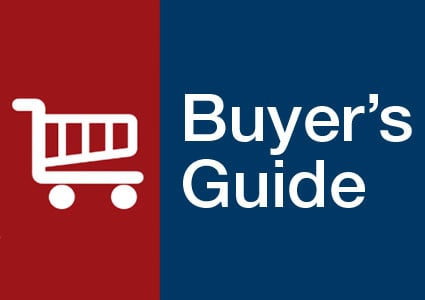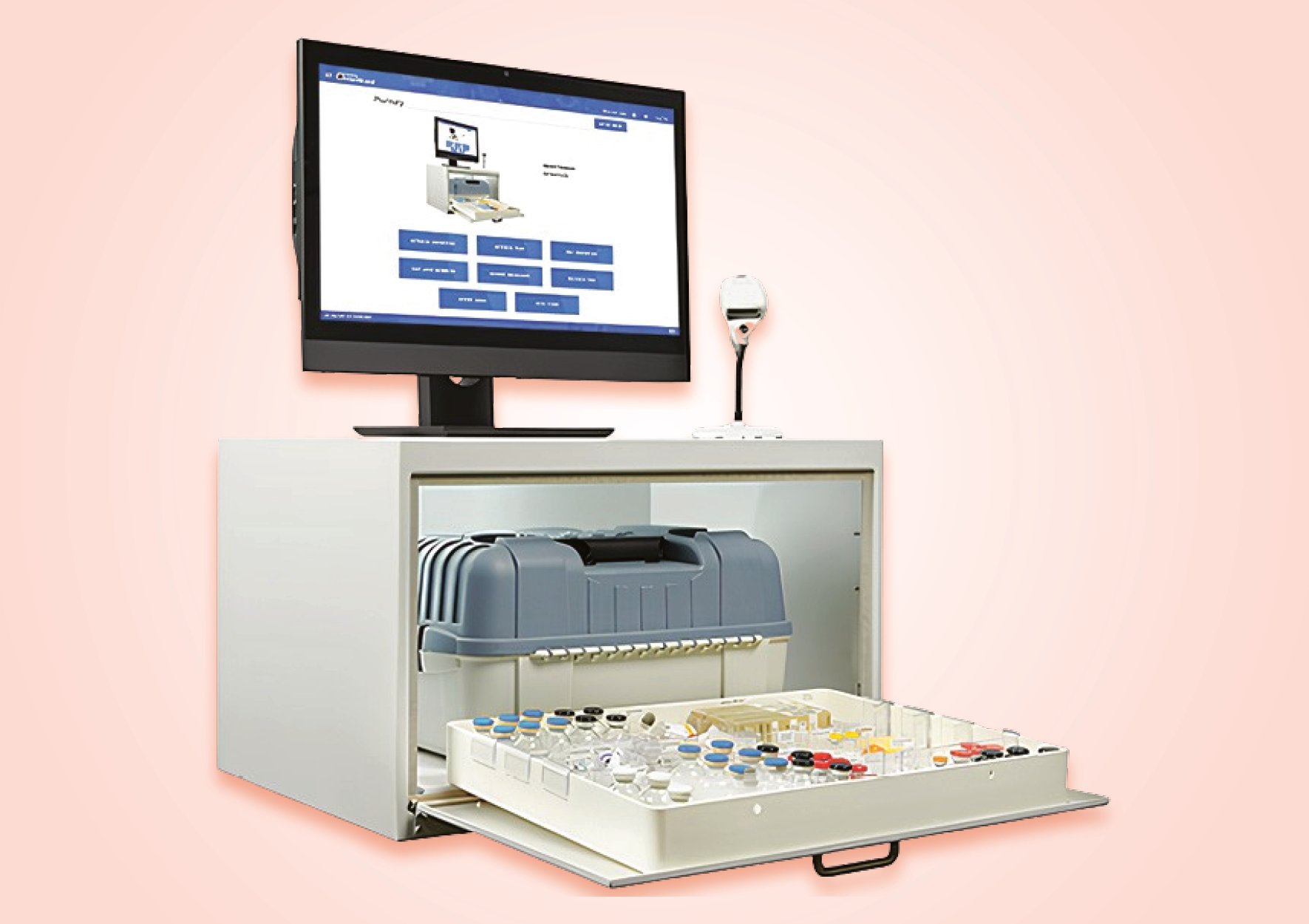- Show Menu
- Contact Us
- FAQs
- Reader Service
- Survey Data
- Survey Winners
- Testimonials
- Upcoming Events
- Webinars
- White Papers
Outsourcing Your Sterile Product Preparation
What You Need to Know
By Andrew J. Donnelly, PharmD, MBA
RECENT CHANGES IN THE REGULATIONS GOVERNING THE PREPARATION OF sterile products, in particular those mandated by USP Chapter <797>, have put outsourcing in the spotlight as one potential solution to some of the challenges facing pharmacy departments today. Following are some factors to consider when determining if there is a need to outsource your sterile product preparation, as well as issues to take into account when selecting an outsourcing company and when financially justifying the decision to outsource.
Determining the Need
From my perspective, the most compelling reason for a pharmacy director to consider outsourcing is having insufficient staff to meet production needs internally. Other reasons include the desire to:
- Streamline pharmacy workflow
- Simplify record keeping
- Eliminate or reduce the internalpreparation of difficult-to-pre-pare or time-consuming products
- Meet regulatory requirements
- Reduce preparation errors
- Reduce waste
Not having sufficient staff to meet your pharmacy’s sterile product preparation needs can be quite problematic. A staff shortage can be brought about by the inability to recruit new people, or it can occur when an increased workload is not accompanied by an increase in the pharmacy’s personnel budget. In those situations, your staff may be asked to work overtime, increasing the possibility of burnout. Alternatively, pharmacists may be assigned to sterile product preparation instead of their regular patient care responsibilities, which can lead to job dissatisfaction and can be detrimental to patient care. Outsourcing some of your sterile product preparation can bring pharmacy workload back to a manageable level and allow pharmacists to remain focused on patients.
The need to extemporaneously prepare frequently ordered sterile products in pharmacy satellites can lead to an inefficient workflow in these areas. For example, every time my satellite staff received an order for oxytocin, they had to stop what they were doing and prepare this product. By outsourcing this product, it is now readily available, workflow interruptions related to oxytocin have ceased, and the oxytocin bags have extended beyond-use dating (formerly known as expiration dating), allowing us to recycle them if they are returned to the pharmacy unused.
Anyone who has ever had to keep records of controlled-substance usage knows it is a time-intensive, error-prone process. It is critical to keep accurate controlled-substance records to be in accordance with state and federal regulations. I found that outsourcing fentanyl/bupivacaine epidural infusions greatly simplified my record keeping for this product.
Solutions that are inherently difficult to prepare are ideally suited to outsourcing. I did not want my staff to have to contend with the degree of complexity involved in preparing two components of our cardioplegia solution from non-sterile powders. Outsourcing this product allowed me to eliminate its preparation from my staff’s responsibilities. In addition to being a difficult-to-prepare product, TPN is labor-intensive and time-consuming for a cleanroom staff to prepare. This is certainly the case in my department, and I have begun evaluating the feasibility of outsourcing the preparation of TPN solutions.
Outsourcing is certainly an option to help achieve compliance with USP Chapter <797>. I outsourced my high-risk compounded sterile products to eliminate the additional QA requirements mandated for products in this risk level. Further, preparing high-risk solutions in-house increases a cleanroom’s space and configuration requirements. So for a facility that currently does not have a state-of-the-art cleanroom, outsourcing high-risk products could save a significant amount of money in remodeling costs.
It is my opinion that outsourcing can greatly reduce the likelihood of errors in the preparation of certain products. The staff of an outsourcing company does not have to contend with the interruptions—phone calls and multi-tasking requirements, for instance—endured by a pharmacy staff. As previously mentioned, the extended dating offered by outsourced solutions allows unused product to be returned to the pharmacy and dispensed to another patient, thereby reducing waste.
Oftentimes you will realize further benefits in addition to those that made you consider outsourcing in the first place. For example, I initially outsourced my cardioplegia solution to free my in-house staff from making this relatively complex solution. However, outsourcing my cardioplegia solution also kept me from worrying about compliance with USP Chapter <797>’s high-risk product requirements and, compared to in-house preparation, reduced the chance for preparation errors to occur.
Selecting a Company
A multitude of factors can affect the selection of an outsourcing company, and the importance of each of these factors varies from institution to institution. The critical considerations in my decision-making process are:
- Product match
- Extended beyond-use dating
- Risk of product shortages
- Company reputation
- Scope of product line
- Vendor proximity
- Product cost
Once I have decided to outsource a product, I like to be able to purchase that product in the same strength and volume/diluent that I am currently preparing in-house. This eliminates the need to get approval from physicians and other health care providers, and minimizes the education required to bring in an outsourced product.
I also like to get as extended a beyond-use date as possible. It is always good to compare the beyond-use dating of several outsourcing companies.
In addition, before selecting an outsourcing company, it is important to find out the number of times a company has been unable to provide products. When outsourcing a product, pharmacies typically no longer include that product in their preparation schedules. So, if the outsourcing company that you select has periodic product shortages, it might be difficult for your pharmacy to resume preparation of a given product.
There is a lot to be said for considering an outsourcing company’s reputation, as well. Ideally, you would like to have a long-term relationship with the vendor you choose, so make sure to select an established company with a good track record (i.e., no product recalls) and good processes in place. It is important to ask companies for their QA summary reports for the last several quarters. This report should contain information on environmental controls (particle count, bioburden, microbiologic ID tracking, temperature monitoring, hood certification, equipment calibration/maintenance, cleaning, etc.); validations (aseptic technique, compounding process sterility, mixing vessel cleaning, shipping, etc.); endproduct testing (assays, visual inspection, refractometry, etc.); drug storage and handling (lot number tracking, vendor recall, rejected product tracking, etc.); and audits of quality assurance, delivery timeliness, and customer complaints.
You should also consider the breadth of an outsourcing company’s product line. A company with a broad product line can give you the ability to expand your outsourcing over time to other products without having to change companies. Certain benefits can be realized by staying with one company, such as contracting leverage, discounts, and standard product appearance, for example.
An additional consideration is vendor location. Working with an outsourcing company in close proximity affords several advantages, such as an increased flexibility in ordering deadlines and the ability to request special deliveries when necessary.
Finally, product cost must be considered when selecting an outsourcing company. If, for example, you have determined that the companies being considered are basically equal, then you would select the least-expensive company. In real life, this kind of clear distinction seldom occurs. More often than not, one has to weigh cost against the other benefits provided by the companies.
Financial Justification for Outsourcing
Whenever I recommend the outsourcing of a product to my boss, my goal is to present, at the very least, a break-even financial analysis. If I can do this, I feel confident that the non-monetary benefits of outsourcing will make it beneficial to both the pharmacy department and the overall institution. In my justification, I try to provide as many “hard dollar” savings as possible. The major areas where “hard dollars” can be saved are in the expenses associated with:
- Personnel
- End-product testing
- The drug(s)/diluent
- Preparation materials (i.e.,tubing for compounding machine)
- Equipment maintenance and recertification
- Environmental monitoring
- Inventory handling/carrying costs
It is important to remember that personnel savings can only be used in the justification if staff can be eliminated or if overtime hours can be reduced or eliminated. You may also want to include potential savings associated with reduced preparation errors in your financial evaluation, but this is much more of a “soft” savings and is difficult to calculate.
There is an alternative approach to the traditional methods of justifying the added cost of outsourcing. You could argue that by reassigning pharmacy staff from sterile product preparation to targeted medication utilization programs, the reduction that could occur in the drug budget would more than offset the cost associated with outsourcing. Of course, you will need to demonstrate that this is actually the case.
Potential Drawbacks
Although outsourcing has been presented in primarily positive terms in this article, one needs to keep in mind that there are potential disadvantages to outsourcing. These include a higher cost for the product, fixed ordering deadlines, the potential for late deliveries, the reliance on an outside company to prepare products for your patient population, the potential for mistakes to still occur, and the possibility of limited formulation options.
Summary
Outsourcing sterile product preparation can help pharmacy departments address some of the challenges they face today. The decision to outsource should be made only after carefully considering the advantages and disadvantages of doing so. Once the decision to outsource is made, careful consideration should also be given to selecting the appropriate outsourcing company.
Andrew J. Donnelly, PharmD, MBA, is the director of pharmacy at the University of Illinois Medical Center at Chicago and a clinical professor in the department of pharmacy practice at the University of Illinois at Chicago College of Pharmacy.
Like what you've read? Please log in or create a free account to enjoy more of what www.pppmag.com has to offer.








